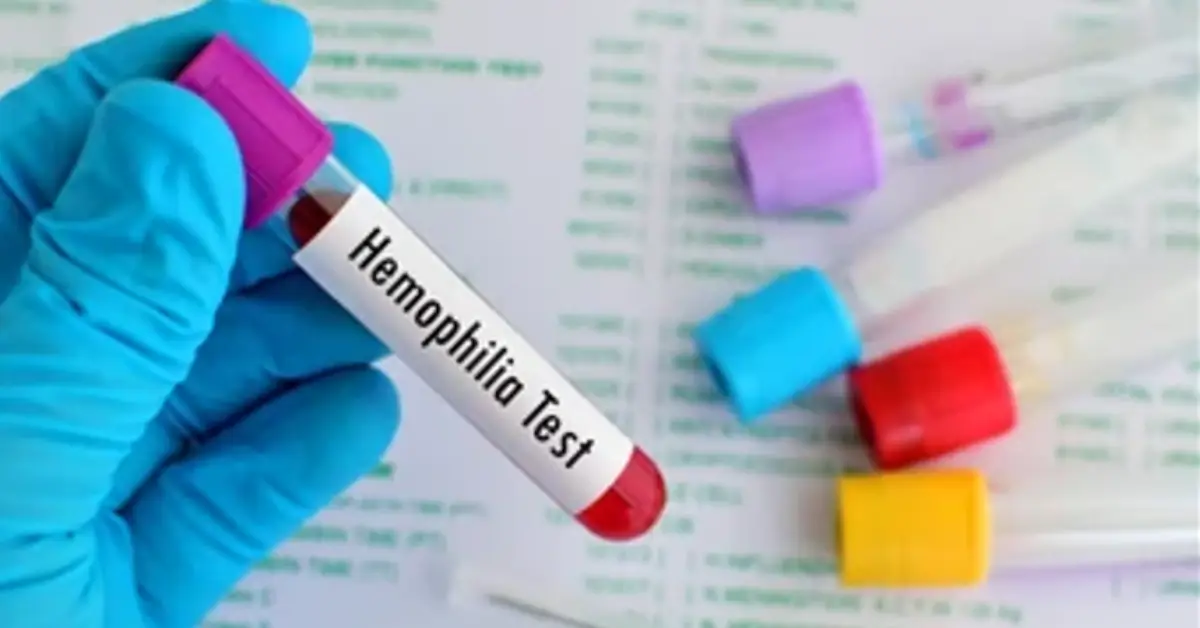Haemophilia is a rare disorder that affects the blood’s ability to clot properly, and this happens due to a deficiency or absence of specific clotting factors, which are proteins in the blood that help control bleeding.
Cimas Health Group’s doctor Hellen Manyau, explained that World Haemophilia Day, which was commemorated on April 16, is observed annually to raise awareness about haemophilia and other bleeding disorders.
“The date was chosen to honour the birthday of Frank Schnabel, the founder of the World Federation of Haemophilia. His efforts were instrumental in establishing a global network to support individuals with haemophilia and other bleeding disorders,” Dr Manyau noted.
“The theme for World Haemophilia Day 2025, “Access for All: Women and Girls Bleed Too”, highlights the need to raise awareness to promote early access to diagnosis and treatment of bleeding disorders affecting women and girls which are often missed.”
Dr Manyau said Cimas Health Group stands in solidarity with the global bleeding disorders community.
“This year, we emphasise the importance of recognising and addressing the unique challenges faced by women and girls with bleeding disorders. Historically underdiagnosed and underserved, these individuals deserve equitable access to diagnosis, treatment and comprehensive care,” she noted.
She pointed out that there is a common misconception that bleeding disorders primarily affect men, leading to a lack of awareness among the public and healthcare providers about the possibility of these disorders in women and girls.
“Symptoms such as heavy menstrual bleeding, are often dismissed as normal variations of menstruation rather than potential indicators of a bleeding disorder. This can delay diagnosis and appropriate treatment,” Dr Manyau said, adding that several bleeding disorders can affect women, impacting their health and quality of life.
“The most common ones include Von Willebrand Disease. This is the most common inherited bleeding disorder that affects both men and women. It can cause heavy menstrual bleeding, prolonged bleeding after childbirth and excessive bleeding during surgery,” she said.
“Platelet function disorders affect the blood’s ability to clot properly, leading to symptoms such as heavy menstrual bleeding, easy bruising and prolonged bleeding from cuts. The quantity of the platelets may be normal, but the function is defective.”
Dr Manyau continued: “Disseminated intravascular coagulation is a rare but serious condition that can occur during pregnancy or childbirth, leading to severe bleeding and clotting problems.”
“Idiopathic Thrombocytopenic Purpura is an autoimmune disorder that causes low platelet counts, leading to symptoms that include heavy menstrual bleeding, easy bruising and nosebleeds.”
She explained that bleeding disorders can be diagnosed in women and girls in several ways including getting detailed menstrual history, asking questions about the duration, frequency and heaviness of menstrual bleeding.
“Women may be asked about the need to change sanitary products frequently or passing large blood clots. Information about any family members with diagnosed bleeding disorders, which can indicate a hereditary condition, can be helpful.”
“Inquiry about other bleeding symptoms such as frequent nosebleeds, easy bruising, prolonged bleeding from cuts or excessive bleeding after surgeries, dental procedures or after delivery may be asked as well.”
Dr Manyau said a physical examination can be done to check for signs of anaemia, bruising or other physical indicators of bleeding disorders.
“Laboratory tests such as full blood count, clotting profile, Von Willebrand factor antigen and activity tests to diagnose Von Willebrand Disease, platelet function tests, genetic testing and bleeding time tests may also be performed,” she said.
Dr Manyau added that healthcare systems can improve access to care for women and girls with haemophilia by increasing awareness among healthcare providers and the public about the symptoms and risks of bleeding disorders in women and girls.
“Development and validation of bleeding assessment tools and strategies to clarify diagnostic thresholds for conditions such as Von Willebrand Disease and platelet function disorders are useful as well.
“Efforts to advocate for better healthcare policies and support systems to ensure women and girls receive the care they need will definitely go a long way in improving access to care for women and girls with haemophilia,” she noted.
“Awareness empowers women and girls with bleeding disorders by providing them with the knowledge and tools to manage their condition effectively. It also helps them know when and where to seek treatment.”
Dr Manyau said while haemophilia is primarily a genetic disorder, certain environmental and lifestyle factors can influence its severity and the overall quality of life for those affected.
“High impact sports or activities that pose a risk of injury should be avoided to prevent bleeding episodes. A balanced diet rich in vitamins and minerals supports overall health and can aid in recovery from bleeding episodes,” she noted.
“Maintaining a healthy weight is also important to reduce stress on joints. Some medications, such as aspirin and nonsteroidal anti-inflammatory drugs, can increase the risk of bleeding and should be avoided unless prescribed by a healthcare provider.”
She highlighted that the risks of untreated haemophilia include internal bleeding which can occur in muscles and joints, causing pain, swelling and potential nerve damage.
“Repeated joint bleeding can lead to chronic joint damage and arthritis. Although rare, bleeding in to the brain can cause severe headaches, vomiting, lethargy and even seizures,” she said.
“Regular infusions of clotting factors can prevent bleeding episodes and reduce the risk of complications. Prophylactic treatment, which involves regular administration of clotting factors, can help maintain adequate levels in the blood.”
Dr Manyau continued: “Engaging in low impact physical activities and avoiding contact sports can minimise the risk of injuries that could lead to bleeding. Wearing protective gear, such as helmets and padding, during physical activities can help prevent injuries.”
“Immediate treatment of any bleeding episodes with clotting factor infusions can prevent complications. Regular medical checkups and monitoring can help detect and manage any complications early.”
Cimas Health Group has clinics where people can get screened for haemophilia. It also has medical laboratories which can offer screening tests for the diagnosis of haemophilia.
“We call upon healthcare providers, policymakers and the public to join us in advocating for better healthcare services and support systems. By raising awareness and fostering understanding, we can break down barriers and ensure that everyone, regardless of gender, receives the care they need,” Dr Manyau said.
“Together, we can create a world where women and girls with bleeding disorders are fully supported and empowered. Let us work towards a future where no one is left behind. Join us in spreading the message and making a difference.”





